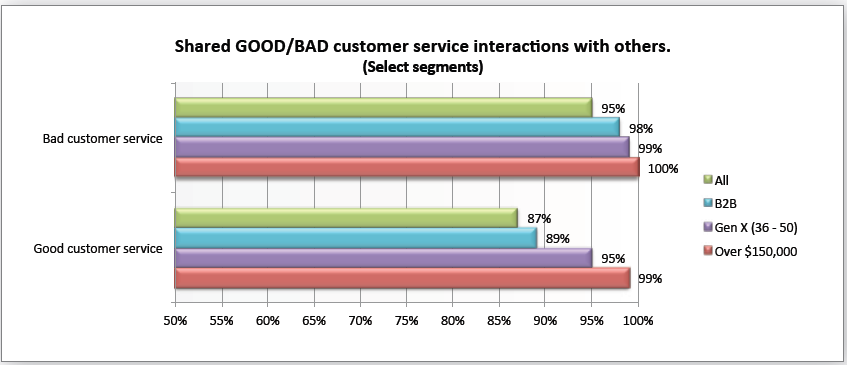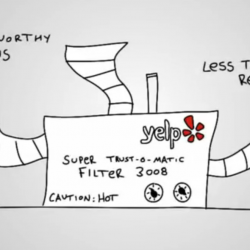(Image via: Yelp)
If you’re like me, you love food. However, this does have its pros and cons. Pro: you will sample any type of crazy food just to try it, and most times – ok, sometimes – it’s actually pretty good! Con: every restaurant’s menu looks fantastic and deciding on only one eatery seems like just too big of a task. Faced with this un-makeable choice, some turn to friends for their opinions and suggestions. Others, turn to online review sites like Yelp.
For me, I ask my friends for advice. I know them and since we are friends we obviously have something in common. As for turning to an online review site like Yelp? Sure, I’ve perused the (often scathing) reviews every now and then, but I always take them with a grain of salt.
Why I don’t put too much weight in these user-submitted reviews is pretty simple and stems from my schooling in public relations. While at the UNC J-School, I was taught, people will take an action – such as writing a review – for often one of two reasons: 1. They are really, really happy, or 2. They are really, really mad. As you may know, those who are furious are typically the ones who are more likely to take action.

Trusting this idea about extreme emotions luring people into action, I’m wary about online reviews. An article in the January/February issue of Midtown Magazine discussed this issue and offered up some great points on how much we really should (or shouldn’t) depend on online reviews for making decisions.
Quoting a study conducted by Dimensional Research in early 2013, the Midtown article stated that a whopping 90 percent of respondents said that their buying decisions are influenced by online ratings and reviews. That’s a lot of people trusting online reviews. The scary part, though, says the article, is that one of the most popular online reviewing sites, Yelp, admits that nearly a quarter of the reviews it receives are fabricated.
This can mean bad news bears for restaurant owners. The article continues with a quote from a second report titled Fake It Till You Make It: Reputation, Competition and Yelp Review Fraud, which claims that just one additional star in a restaurant’s review can equate to about 10 percent in added revenue. With this much at stake, what can owners do to ensure that Yelp helps, not hurts their business? Here are three tips Midtown Magazine shared:
1. The I can’t see you, you can’t see me mentality most certainly does not apply here. Just because you aren’t keeping tabs on the reviews on sites like Yelp, doesn’t mean that they aren’t there. Instead of ignoring negative comments, use this as an opportunity improve your business, and if you’re lucky, make a brand advocate. Take the time to respond to complaints and negative comments. Provide your customer with an apology, ask how you can help and try to make the situation better. Offering a helping hand and a genuine concern about the problem can be all you need to turn an unhappy customer into a customer for life.
2. You can’t do it all. All it takes is one person to ruin a guest experience, or worse, your reputation. A proactive approach to beating negative reviews is making sure guests have no negative feedback to share. Stressing customer service as one of the most important parts of the job can be just what is needed to take a server’s job performance to the next level, and subsequently the diner’s experience.
3. Flag fake reviews. Last, but not least, reporting a suspected fake review is always an option. If you truly believe that an online review is faux and defamatory, flag that bad boy and send it to the Yelp officials to deal with immediately. Posting fake reviews on sites like Yelp is a crime, and the website takes fake reviews — good and bad — very seriously.
https://www.youtube.com/watch?v=Dqi-jjbEKcs&feature=player_embedded
To read more details about the validity of online reviews and for a complete list of best practices for business owners and consumers, check out the full article, “The Reviews are in and They’re…Fake?” in Midtown Magazine.

